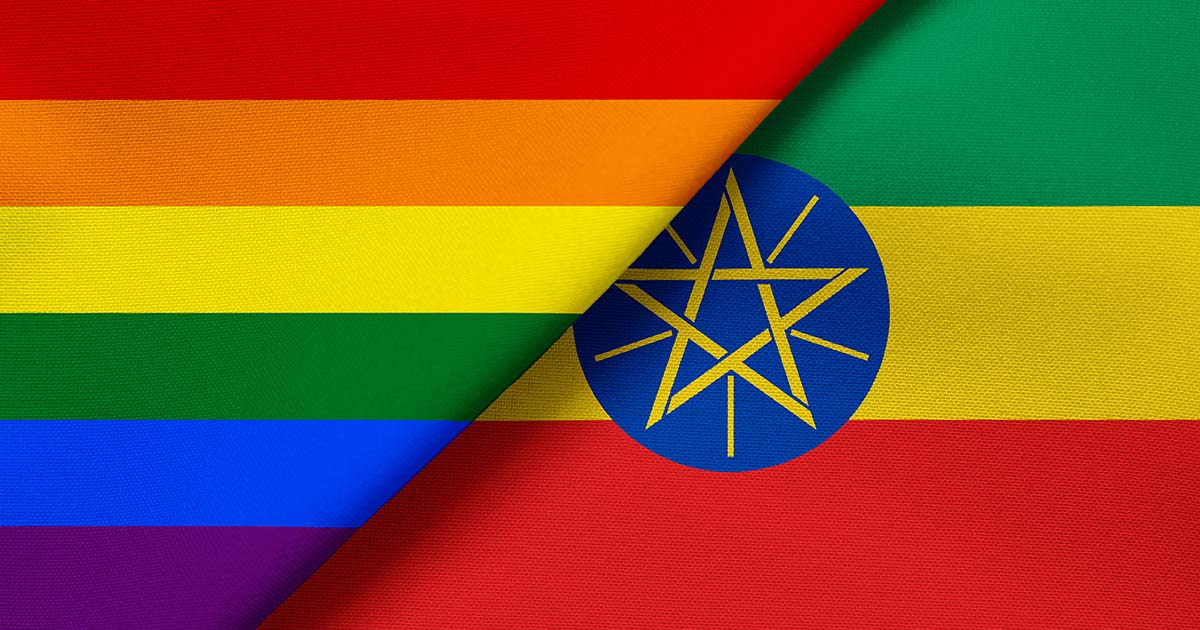Ethiopia: LGBTI+ community facing surge in hate and violence

- Anti-LGBTI+ content on TikTok and other social media platforms promote vigilante justice.
- Videos and photographs of forced confessions and physical assaults often include personal details.
- Homosexuality is criminalised with penalties including up to 15 years in prison.
- Ethiopian LGBTI+ activists are seeking global support against rising attacks.
In recent weeks, LGBTI+ organisations in Ethiopia have documented a troubling rise in attacks against individuals based on their real or perceived sexual orientation and gender identity.
Anti-LGBTI+ content on TikTok and other social media platforms has garnered hundreds of thousands of views, displaying images and videos of individuals who may or may not identify as LGBTI+, the majority of whom reside in Ethiopia.
These videos openly encourage violence, calling for the killing, burning, and beating of those suspected of belonging to the LGBTI+ community within Ethiopia.
Vigilante justice is promoted, and videos and photographs of forced confessions and physical assaults are widely shared, often including personal details like phone numbers or addresses of the accused.
The threat of violence has dramatically expanded to include threats against the families of accused LGBTI+ individuals.
Despite efforts by the Ethiopian LGBTI+ community to mass-report these social media accounts, the videos continue to appear at an alarming rate. The videos are now being shared within closed or secret groups on the platform Telegram.
Due to language barriers in automated detection systems, it has been challenging to track and report the videos as hate speech on social platforms, as they are produced in Amharic or other Ethiopian languages.
Although Ethiopia has a history of generating hateful, violent and homophobic content online, this recent escalation began in May, with videos secretly recording perceived LGBTI+ individuals at a public event.
The subsequent spread of the videos to family and close circles led to the individuals in question receiving threats and physical assaults at university and eviction from their homes.
On August 1, live broadcasts on TikTok captured three public demonstrations in prominent areas of Addis Ababa, inciting followers to take personal action. While these events were initiated by individuals, anti-LGBTI+ movements are now planning to organise a rally at Meskel Square, the city centre.
A statement from the Addis Ababa Tourism Bureau on August 4 announced efforts to identify hotels and restaurants allegedly serving LGBTI+ persons. The Addis Ababa Police Commission further endorsed this position on August 5, urging the public to report businesses that allow “homosexual activities.”
This marks the first government acknowledgement of the situation and raises concerns over the potential arbitrary incrimination of individuals, irrespective of their actual sexual or gender identity. The Police Commission’s silence on the ongoing attacks has deeply concerned Ethiopian LGBTI+ activists, who fear that it may be seen as tacit approval, further emboldening those committing violent acts.
The rise in attacks on the LGBTI+ community in Ethiopia is reflective of a wider trend across Africa and anti-gender movements across the globe. The situation in Ethiopia is alarming due to the nation’s deteriorating socio-political climate and growing nationalism.
The matter of LGBTI+ rights has become a flashpoint, fueling intense opposition and vilification that is spreading rapidly both within the country and among Ethiopians abroad. Now branding themselves as a social movement, the citizen-led initiative strategises live on TikTok, gaining substantial participation and encouraging Ethiopians to take action against the issue.
Ethiopian LGBTI+ organisations are closely monitoring the situation and addressing the current crisis, but the complexity and scale of the situation necessitate regional and international attention and monitoring.
Ethiopian activists are now looking for support from regional and international media outlets, human rights organisations, digital rights and other potential partners.
Please share this information among your networks to amplify our call for solidarity and support.
The author of this article is a human rights defender in the region who has chosen to remain anonymous.
Leave a Reply